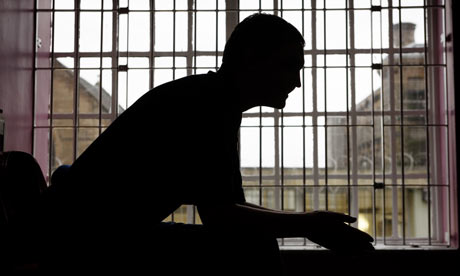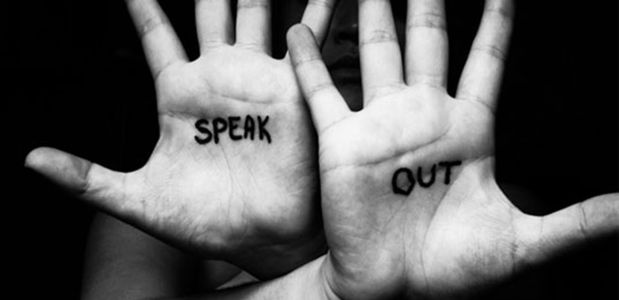I get dozens of emails each week from readers who have read CRAZY: A Father’s Search Through America’s Mental Health Madness. Most are from writers who are frustrated and desperate for help. Here are several examples.
Cries for help from readers
Then and Now: A Surprise!
The first car my wife, Patti, bought on her own was a 1969 Karmann ghia that was in awful condition. It was all she could afford in 1979 when she was fresh from college and starting a family with her first husband, Steve, who later died from complications caused by cancer. I noticed one day that she kept a photo in her office that showed her sitting proudly in that piece of junk. The photo was taken in August 1979.
So Tony, my son who loves cars, and I decided to surprise her recently with a completely restored yellow Karmann ghia. It’s a 1970 model.
Sometimes in life, as the old saying goes, “You need to stop and smell the roses.” Or, in this case, the exhaust.
Happy Labor Day!


Forty Years Later Jail Still Violating Rights

Shortly after my book, CRAZY: A Father’s Search Through America’s Mental Health Madness, was published in April 2006, I received a telephone call from an attorney at the U.S. Department of Justice who asked me about incidents at the Miami Dade County jail that I’d described in my book. The federal investigator was curious about my claims that correctional officers, who worked on the ninth floor of the jail, physically beat inmates. During the ten months that I’d spent doing research at the jail, I had been told several times by officers that I needed to exit the floor “for my own safety” while jailers “put their hands” on troublesome inmates. When I returned to the cellblock later, I was able to confirm that guards had gone into cells and beaten inmates. One officer was especially infamous for abusing prisoners. He bragged about it. At the time, I was surprised at how openly officers talked to me about the beatings.
Last Friday, the Justice Department released a three -year study of the Miami Dade corrections department and the federal investigators’ findings confirm what I first revealed in my book. Put simply, the Miami Dade Pre-trial Detention Center is a living hell on earth for inmates with mental illnesses.
Telling Our Stories

Since the publication of CRAZY, not a week goes by without me getting a letter or email from a distraught parent whose son or daughter has been arrested or is in jail because of a crime that was clearly tied to mental illness. The most common comment that I hear when I am on the road giving speeches about my book is: “You told my story.”
I always feel inadequate when I try to answer requests from other parents seeking help. I’m not a lawyer. I urge people to contact their local National Alliance on Mental Illness chapter or Mental Health America for guidance. I sometimes suggest they contact the Bazelon Center for Mental Health Law. I ask if their local community has Crisis Intervention Trained police officers, a mental health court, or a jail diversion program.
And then I ask them to consider going public. I tell them newspaper and television reporters would be interested if they knew a person was put in jail because of a mental illness. Not everyone feels comfortable being interviewed. It also is never a good idea to expose someone you love to the media if he/she wants to keep their illness secret. Even though my son urged me to write my book, I spent many sleepless nights worrying that our openness about his arrest and illness would harm his future.
Nickelodeon Criticized for Stigmatizing Stereotype
You might remember that I created an award called the Stupidity Award for Promoting Prejudice a while back and gave the first to an NBC sports writer who didn’t see anything wrong with a high school dance team in Waunakee, Wisconsin wearing straight jackets with the word PSYCHO WARD printed on them as they performed in a state competition. 
I was tipped off to that school’s insensitive, stigma-promoting performance by a fellow mental health blogger, Chrisa Hickey, who posts her thoughts at The Mindstorm: Raising a Mentally Ill Child.
Chrisa sent me an email about a new example of stigma in the media. From reading her note, it sounds as if another SAPP award is due.
Dr. E. Fuller Torrey: Sounding An Alarm or Being an Alarmist?
For the past several weeks, I have had an interesting and troubling email exchange with Dr. E. Fuller Torrey, perhaps the most controversial psychiatrist in America. He’s also one of the most influential.
Today, Dr. Torrey is best known for his campaign to get Assisted Outpatient Treatment laws passed. An example is Kendra’s law. There’s plenty on the Internet — pro and con — about AOT. 
It would be a mistake, however, to believe that Dr. Torrey’s impact has only been in promoting AOT legislation. He has been sounding alarm bells and criticizing our mental health system for decades. Among other things, he has founded two organizations. The Stanley Medical Research Institute is a nonprofit organization that supports research looking for the causes and treatment of schizophrenia and bipolar disorder. According to its webpage, it has given away more than $300 million since 1989 for research, mostly outside the U.S. The second group is the Treatment Advocacy Center which describes it’s purpose as “eliminating barriers to the timely and effective treatment of severe mental illness.” TAC’s main focus is pushing for passage of AOT laws.



